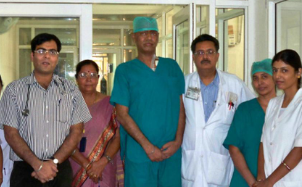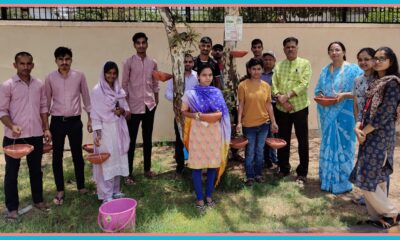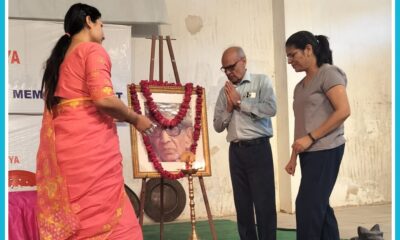Jaipur
Soon, Jaipur will house the biggest bone marrow transplant facility in India for cancer patients
Published
2 years agoon

JAIPUR: Soon, Jaipur will boast the biggest bone marrow transplant facility in the nation. The State Cancer Institute is currently developing a 50-bed center. By the end of 2023, the project will probably be up and running.
Patients with blood cancer will feel a great deal of relief because the state doesn’t have the necessary infrastructure for bone marrow transplants. There is a 2-bed center at SMS Hospital in Jaipur right now, however, the facilities are subpar, and there is a long waiting list because of a lack of staff and funding. The average wait time for a transplant is over a year.
The majority of patients must rely on medications and are unable to benefit from transplants. However, this will alter as the center develops. Patients with blood malignancy benefit more from bone marrow transplants than from therapy. Therefore, after the center’s opening, maybe more patients will be able to gain from it, said a representative of the State Cancer Institute.
The official stated, “Transplant therapy at an early stage of cancer is vital, but because there are now not enough facilities in Jaipur, the patients have to either rely on private hospitals or wait for their turn, which is currently very long.
Read Also – During an investigation into two previous fatalities, another Russian was discovered dead in Odisha
He noted that the Chief Minister Chiranjeevi program allows for free transplant surgery in Rajasthan. Most patients cannot afford the up to Rs 25 lakh cost of a bone marrow transplant at private facilities.
The most crucial prerequisite for a bone marrow transplant is that the patient’s bone marrow and the donor’s bone marrow match. Additionally crucial is having a human leukocyte antigen match. In siblings, there is a 25% chance of HLA matching, and in parents, it ranges from 1% to 3%.
You may like
-


India gets more color options for the Xiaomi Redmi Note 13 series: Look this this
-


During Paris Fashion Week 2024, Janhvi Kapoor makes a dramatic debut wearing a black textured skirt and bustier designed by Rahul Mishra.
-


पक्षी मित्र योजना में बांधे परिंडे
-


DAV Centenary Public School Jaipur organises the splashing Pool Party for the kindergarten Section
-


Sine International School
-


पद्मश्री रामगोपाल विजयवर्गीय म्यूजियम में कला कैंप का आगाज़!

